We have a rose in our yard called ‘Lichtkönigin Lucia’, Lucia Queen of Light. It was given to us by good friends shortly after Lucia died. This year, the leaves are verdant green, the blooms full, abundant, bright, and fragrant. The rose carries such meaning it is almost company.
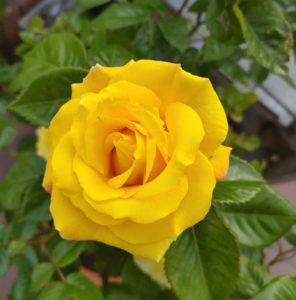
We sent photos to the family who gave it to us. “The beautiful Queen of Light. She is looking absolutely radiant; how could it be anything other!” Shining appropriately, as Lucia would be.
It’s different now, of course. Now we have to see Lucia’s radiant, vibrant energy in other ways. Sometimes in the effect Lucia had, and still has, on others.
- In April last year, the British Liver Trust and Children’s Liver Disease Foundation merged to combine their expertise and passion and become a stronger, more effective support caring for children and adults with liver conditions. Lucia championed Children’s Liver Disease Foundation, fundraising, speaking, participating in events. This year, two of us (Lucia’s parents) were honoured to follow her footsteps, becoming ambassadors for the merged charity.
- In the Botanic Gardens, Belfast, is a tribute to a young man from Galway, Éamonn Goggin, who died in a tragic accident in July 2006. As was his wish, Éamonn’s parents agreed to donate his organs, saving the lives of others. The Circle of Life memorial garden was created in Salthill, Galway, and replicas of its central sculpture donated to other gardens in Ireland, the UK, and other countries. A five-foot stone candle was gifted to Belfast. Wrapped around with beds of flowers, in Botanic Gardens, it invites quiet reflection, gratitude, inspiration. In March this year, Live Loudly Donate Proudly was invited to speak at the rededication of this space, Lucia’s story unwrapped again in gratitude for donors, inviting open conversations about organ donation.
- At the end of April, over 150 young people gathered on a sports campus in Ballycastle with helmets and sticks. Camogie is a fast-paced team sport, played by women. It is a uniquely Irish tradition, and Lucia’s part of the world creates champions in its schools. For the fourth year in a row, eight regional schools competed again for the Lucia Quinney Mee Memorial Cup, and the Live Loudly Donate Proudly Shield. Organised by a teacher and her team from Lucia’s old school, it has proved to be a fun and engaging way to raise awareness about organ donation and encourage young people to make a difference. (More detail in a previous blog – Transplants, a cup, a shield…and camogie and photos from this year on our Facebook page.)
- Last year, lesson plans and material for school assemblies were successfully tested in primary schools across Northern Ireland. Similar trials with materials for secondary schools went to 24 NI schools. So far, the materials have been received very positively by all. They are expected to be launched for all schools in the new school year, in time for Organ Donation Awareness Week. It’s a giant step closer to organ donation education being part of Northern Ireland’s National Curriculum, accurate information given to all students, countering myths and misinformation, enabling young people to make their own informed decisions, opening conversations with others, and making a difference. This was at the heart of Lucia’s aim in creating the Live Loudly Donate Proudly campaign, and it is exciting to see this progress.
- There is art in this shining energy, too. Two local artists caught us by surpise, generously painting the Live Loudly Donate Proudly logo beneath an image of a lighthouse, into a mural on Rathlin Island. Lucia’s campaign, a light shining out of her own darkness for the safety of others.
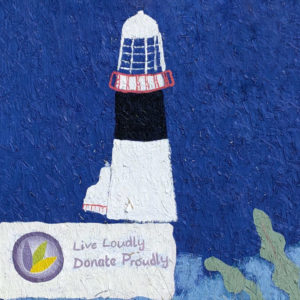
- And we have just heard of another gentle, generous gift, that may be released in October. But that’s another story, for another time…
Something in it all could make a difference for someone. It might help another family hold on to their loved one for longer. It may help others find some flicker of light, some hope, some deep pride in the thought that their loved one has made life better, possible, for another.
Yet for all that, it’s not enough for us. Lucia was much more than her medical condition, her transplants, her campaigning. After she finished her talks, her presentations, her hospital visits and operations – all but one – she came home, the youngest and much cherished member of our family of four. She was just our Lucia again, at home.
So of course it’s not enough. No fair trade. But it is “a something.”
And sometimes it catches the light. It shines. A sweet fragrance on a breeze…


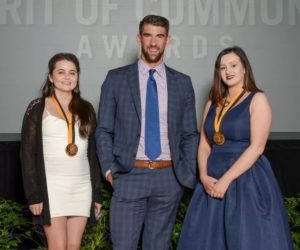 Lucia, Michael Phelps and Emily
Lucia, Michael Phelps and Emily
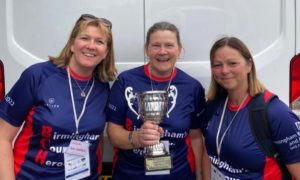 Sara (centre), with Lindsay (left) and Jemma (right)
Sara (centre), with Lindsay (left) and Jemma (right) 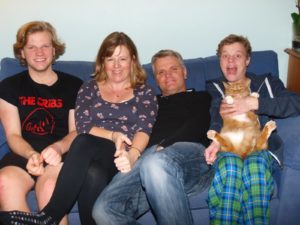 The Biggsies
The Biggsies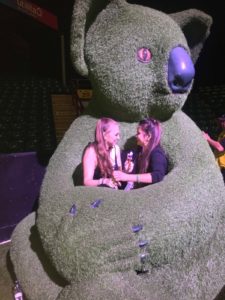 Charlotte (left) with Lucia
Charlotte (left) with Lucia
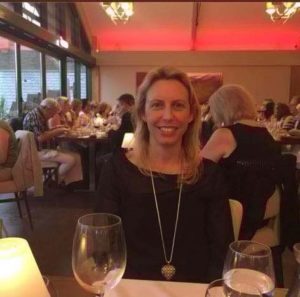 Jane
Jane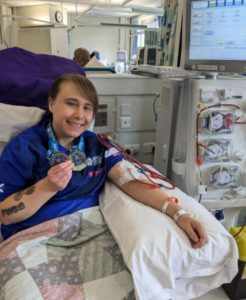 Zoe, “keeping it renal” with medals and tubes…
Zoe, “keeping it renal” with medals and tubes…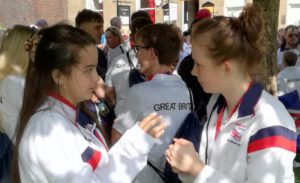 Alicia (rht), with Live Loudly Donate Proudly founder and friend, Lucia (left)
Alicia (rht), with Live Loudly Donate Proudly founder and friend, Lucia (left) 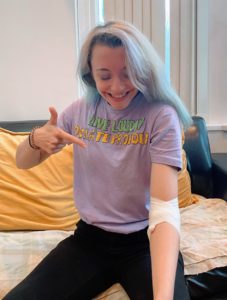 Lucy’s first time as a brave blood donor
Lucy’s first time as a brave blood donor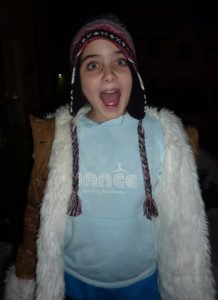
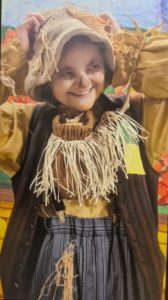 Connie – star performance as the Scarecrow
Connie – star performance as the Scarecrow